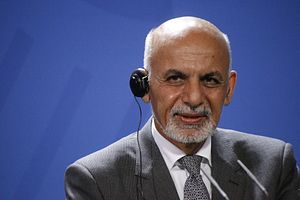Afghan President Ashraf Ghani came to truly understand the socio-economic and socio-political situation of South Asia during his tenure at the World Bank. And after his elevation to the presidential palace, one of his major objectives was to transform the region economically. He envisioned a region where stakeholders worked together to build consensus on transnational issues such as extremism, terrorism, and poverty, and promoted economic integration.
On his first official visit to India, Ghani stated that “breakfast in Delhi, lunch in Peshawar, and dinner in Kabul–that’s the world we seek!” Then, risking his political capital back home, he approached Pakistan, believing that a transformation in relations was necessary in order to build a new era based on mutual trust and respect. Mutual trust and respect are necessary for not only transforming relations and building a new regional order, but also for promoting peace and stability in Afghanistan. Afghanistan is the heart of Asia and regional states, particularly the Central Asian states and Pakistan, must be involved there. The Afghan state, after all, is largely fighting a war on their behalf.
At the fifth annual Heart of Asia-Istanbul Process ministerial-level conference, Afghanistan gathered all regional states and players on a single platform and crafted a collective strategy to overcome common problems and work for promoting economic cooperation.
Ghani voiced the idea that a stable Afghanistan can not only bridge South, Central and West Asia, but that it can do so exceedingly well given its strategic location and cultural similarities with its neighbors. Afghanistan can become a center of cultural and economic exchange. Ghani is of the opinion that Afghanistan can once again play its critical role in transforming this region.
Furthermore, the recent visit of Indian Prime Minister Narendra Modi to the Afghan capital was part of that process for this region that Ghani envisioned. According to Afghan officials who spoke to The Diplomat on condition of anonymity, the Afghan president played an instrumental role by convincing Modi to normalize relations with Pakistan, including paving the way for Modi’s historic visit to Pakistan to meet his Pakistani counterpart.
Amid these changes in the region, it is incumbent upon regional states to give up on their proxy wars in Afghanistan and support Ghani’s dream of “Breakfast in Delhi, lunch in Peshawar, and dinner in Kabul.”
Regional states need to realize that Afghanistan, Pakistan, India, and the Central Asian states share many common threats and opportunities. If a political earthquake shakes Kabul, it will be felt in Islamabad and Delhi too. Our prosperity is linked to each other’s stability. Peace in Kabul means peace in Islamabad and Delhi as well.
As 2016 begins, it will be more important than ever for regional states–particularly India and Pakistan–to work together in Afghanistan.
Aziz Amin Ahmadzai writes on political, security and social issues in South, West and Central Asia. He is based in Kabul and tweets at @azizamin786.
































